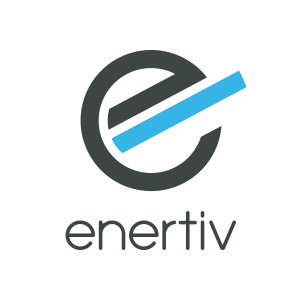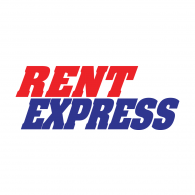Top Bookkeeping Services for Business
List of 30 Best Bookkeeping Services


What is BookKeeping Software?
Bookkeeping software is a type of computer program designed to simplify and automate various accounting tasks related to bookkeeping. It provides businesses and individuals with a digital solution to manage and record financial transactions, track income and expenses, and maintain accurate financial records.
Bookkeeping software typically offers features such as:
Recording transactions: It allows users to enter and categorize financial transactions, including sales, purchases, expenses, and payments.
Bank reconciliation: The software enables users to match their recorded transactions with bank statements, ensuring accurate and up-to-date financial records.
Invoicing and billing: It provides tools to create and send invoices to clients or customers, track payment status, and manage billing cycles.
Financial reporting: Users can generate various financial reports such as profit and loss statements, balance sheets, cash flow statements, and customizable reports to gain insights into their business's financial health.
Tax preparation: Many bookkeeping software solutions offer tax-related features, such as tracking deductible expenses and generating reports to simplify the tax filing process.
Integration with other systems: Bookkeeping software often integrates with other business tools, such as payment processors, payroll systems, and customer relationship management (CRM) software, to streamline data exchange and improve efficiency.
Which industries can use the bookkeeping software?
Bookkeeping software can be utilized by various industries and businesses of all sizes. Here are some examples of industries that commonly benefit from using bookkeeping software:
Small and Medium-sized Enterprises (SMEs): Bookkeeping software is highly valuable for SMEs as it helps them manage their financial transactions, track expenses, and generate financial reports without the need for extensive accounting knowledge.
Freelancers and Self-Employed Professionals: Individuals working as freelancers or in self-employed capacities, such as consultants, writers, designers, and photographers, can use bookkeeping software to keep track of their income, expenses, and invoices.
Retail and E-commerce: Businesses involved in retail and e-commerce can utilize bookkeeping software to manage sales transactions, track inventory, monitor cash flow, and reconcile payments from various channels.
Service-based Industries: Industries offering professional services like legal firms, marketing agencies, consulting firms, healthcare providers, and maintenance services can use bookkeeping software to track billable hours, manage client invoices, and monitor project expenses.
Hospitality and Tourism: Hotels, resorts, travel agencies, tour operators, and restaurants can benefit from bookkeeping software to manage reservations, track expenses, monitor revenue, and generate financial reports specific to their industry.
Non-profit Organizations: Bookkeeping software can assist non-profit organizations in managing their finances, tracking donations, monitoring grant expenses, and generating reports required for compliance and transparency.
Real Estate: Real estate agencies, property management companies, and real estate investors can utilize bookkeeping software to track rental income, manage expenses related to property maintenance, and generate financial reports for multiple properties.
These are just a few examples, and bookkeeping software can be tailored to meet the specific needs of various industries. It provides flexibility and scalability to adapt to different business models and requirements.
What are the features of BookKeeping software?
Bookkeeping software typically offers a range of features to streamline financial management and simplify accounting tasks. While the specific features may vary across different software solutions, here are some common features found in bookkeeping software:
General Ledger Management: The software allows users to create and manage a general ledger, recording all financial transactions and categorizing them appropriately.
Expense Tracking: Users can track and categorize business expenses, such as purchases, bills, and operational costs, to monitor spending and maintain accurate financial records.
Invoicing and Billing: Bookkeeping software often includes invoicing features, enabling users to create and send professional invoices to clients or customers, track payment statuses, and manage billing cycles.
Bank Reconciliation: This feature helps users reconcile their recorded transactions with bank statements, ensuring accurate and up-to-date financial records.
Financial Reporting: Bookkeeping software offers various financial reporting capabilities, such as generating profit and loss statements, balance sheets, cash flow statements, and customizable reports to provide insights into the financial health of the business.
Chart of Accounts: The software allows users to create and manage a chart of accounts, which organizes financial transactions into specific categories for easy tracking and reporting.
Tax Management: Many bookkeeping software solutions offer tax-related features, such as tracking deductible expenses, generating tax reports, and simplifying the tax preparation process.
Integration with Bank Accounts and Payment Processors: Bookkeeping software often integrates with bank accounts and payment processors, allowing for seamless importing of financial data and automatic categorization of transactions.
Multi-Currency Support: For businesses operating internationally, bookkeeping software may support multiple currencies, enabling accurate tracking and reporting of transactions in different currencies.
Data Security and Backup: Bookkeeping software prioritizes data security, often offering features like data encryption, user access controls, and regular automated backups to protect sensitive financial information.
Integration with Other Business Tools: Some bookkeeping software solutions integrate with other business tools such as payroll systems, CRM software, and e-commerce platforms, allowing for streamlined data exchange and improved efficiency.
These features are intended to simplify financial management, enhance accuracy, and provide valuable insights into the financial performance of a business. The specific features and functionalities may vary based on the software provider and the needs of the user.


.png)

